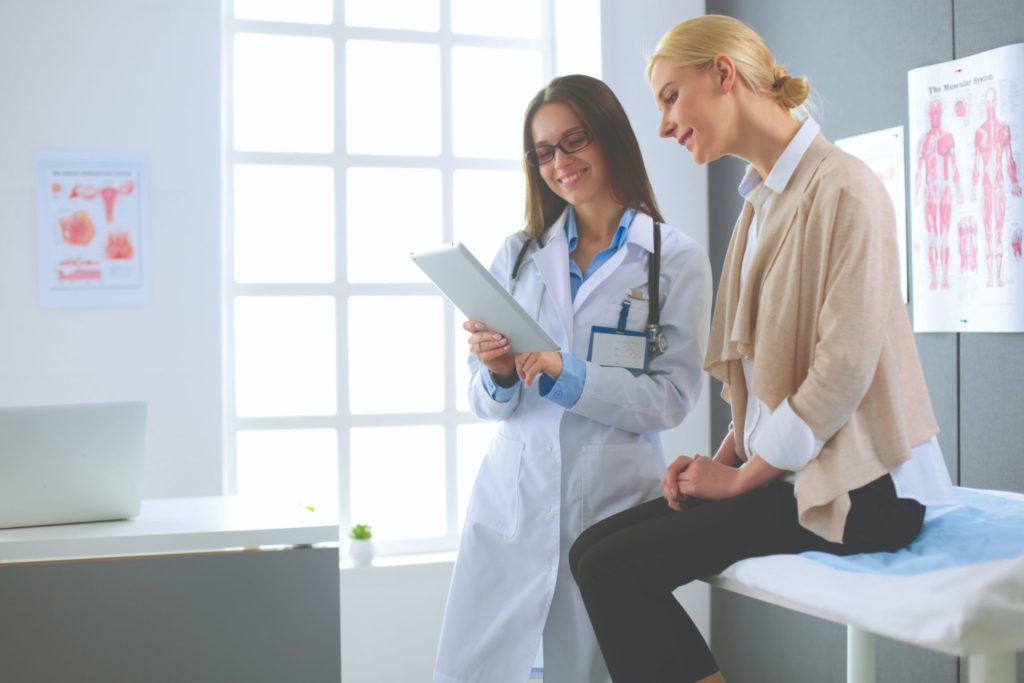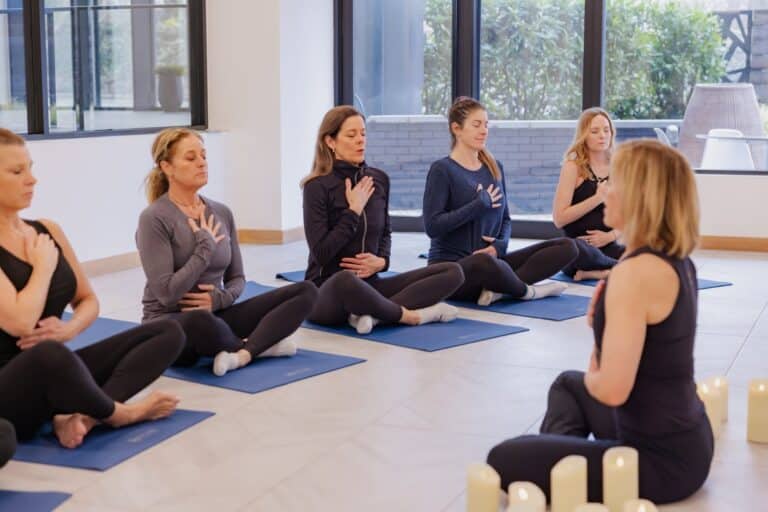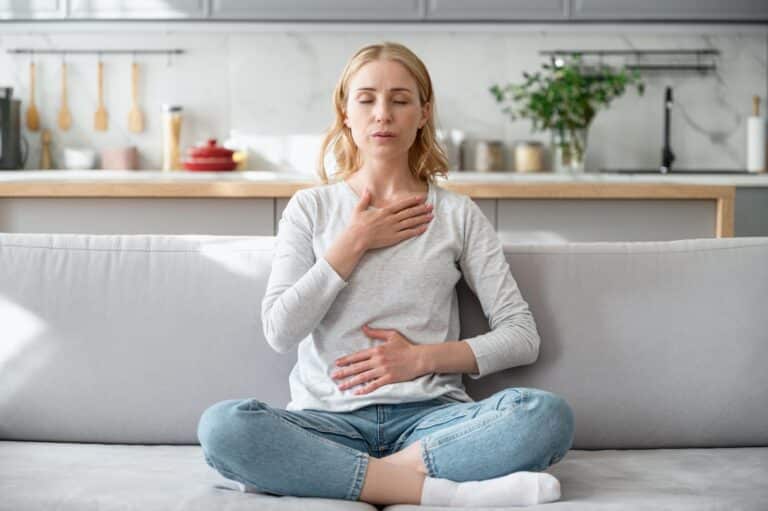From fertility to breast cancer prevention, here’s an age-by-age look at what women should know about their health.
“It is important for women to take care of their health because, as a famous quote says, ‘an ounce of prevention is worth a pound of cure,’” says Romelle Maloney, MD, an OB/ GYN with Greenwich Hospital and Northeast Medical Group, both part of Yale New Haven Health. “Women are living longer. And when a woman is in good health, she spreads that wellbeing to her family and her community.”
But of course, when it comes to health, many of the issues women focus on—particularly things like fertility, breast cancer prevention, menopause, and more—depend on our age. “A woman’s body changes over time as part of the aging process,” explains Maloney. “It is a natural process. And good health makes the passages of her life an amazing journey.”
So what does that look like? Here’s a breakdown of health issues to keep top of mind and discuss with your doctor—at every age.
Teens and 20s
While you might not be in your teens anymore, your daughter might be. To that end, be sure to keep an eye on when she starts her period—and how it affects her. “It can be associated with irregular or heavy menses, mood changes and painful periods,” says Maloney. Though it’s recommended to start pap smears at age 21, visiting the gynecologist is still a good idea before that—and gives the doctor a chance to have the ‘what is normal’ conversation, Maloney says. “During this time period, older teens are transitioning from childhood to young adulthood. Some will be moving away from home for the first time. These gynecology visits allow an opportunity to empower a teen to start caring about her health,” explains Maloney. Some important topics to talk to the doctor about include the HPV vaccine and STI-prevention, as well as what a healthy relationship looks like.
For women in their 20s, along with getting regular pap smears—which are every three years until age 29—some of the topics that should be addressed include STI prevention and the HPV vaccine, as well as birth control options, says Maloney. Self-breast exams are also important to start in your 20s—and continue to do no matter how old you are. “The use of self- breast exam in this age group is essential,” says Barbara Ward, MD, breast surgeon and medical director at the Greenwich Hospital Breast Center. “I like to use the phrase ‘self-aware’ because self-exam sounds like a test that can be failed. Being self-aware means taking personal responsibility for a new, significant lump.” And by that she means a lump that “seems to come out of nowhere.” And find out about your history—from both sides of the family tree. “Learning about the presence of a BRCA 1/2 gene, for example, in this age group allows for earlier surveillance with breast MRI, breast ultrasound and mammography when age appropriate.”
At this age, some women might also start to think about freezing their eggs. “There are no clear recommendations for women in their 20s as to whether they should or should not freeze their eggs. However, in my opinion it is never too early to freeze eggs,” says Zaher Merhi, MD, the founder of Rejuvenating Fertility Center in Westport, CT, and NYC. On the other hand, Nora R. Miller, MD, a board-certified reproductive endocrinology and infertility specialist with Yale Medicine Greenwich Fertility, says that “women in their 20s should not consider freezing their eggs electively to preserve their fertility for the future. They are still young and are unlikely to use their frozen eggs or need to use them in the future. Most women in their 20s will find a partner and be able to conceive spontaneously.” But she does say that “if a woman has risk factors for prematurely losing her reproductive capacity—such as severe endometriosis or cancer, and will undergo chemotherapy, radiation to the pelvis or surgical removal of her ovaries— she should freeze her eggs at the time of diagnosis.”

30s and 40s
Maloney says that women in their 30s are often busy with families and careers—and should remember to take care of themselves, too. “During the gynecology appointment, topics that may be discussed include preconception counseling, long-term birth control methods, weight management and mental health check-in.” Plus, she says to keep an eye out for pelvic pain, which could be a sign of endometriosis—which is one cause of infertility.
When it comes to fertility, as women reach 35, which is when fertility starts to decrease, some consider freezing their eggs, says Maloney. “Between 35 and 40 is when the majority of patients take action to do IVF or egg freezing,” says Merhi. But that doesn’t mean that having babies in your 40s isn’t possible. “For women in their 40s, it is important to understand that even though it is hard, there is always a good chance of getting pregnant with IVF. Especially women in their early 40s,” says Merhi.
Fourty-somethings should talk to their gynecologist about any pelvic pain, abnormal uterine bleeding, sexual changes, hormonal imbalance, or signs and symptoms of depression, says Maloney.
For most women, it’s also when you want to start getting regular mammograms. Linda LaTrenta, MD, director of breast imaging at Greenwich Hospital Breast Center, says that at the Center, “we believe that annual screening with mammography should begin at age 40 or 10 years younger than a first degree relative (mother/sister)
developed breast cancer.” She also says that some women, particularly those who are planning to get pregnant, may opt to do a baseline mammogram between 35 and 40 years old. Overall, LaTrenta says, “the goal of mammography is early detection to minimize surgery, reduce the need for more aggressive treatments, such as chemotherapy, and decrease the risk of dying from breast cancer.”
“IT IS IMPORTANT FOR WOMEN TO TAKE CARE OF THEIR HEALTH BECAUSE, AS A FAMOUS QUOTE SAYS, ‘AN OUNCE OF PREVENTION IS WORTH A POUND OF CURE.’ WOMEN ARE LIVING LONGER. AND WHEN A WOMAN IS IN GOOD HEALTH, SHE SPREADS THAT WELLBEING TO HER FAMILY AND HER COMMUNITY.”
–Romelle Maloney, MD
50s and up
“The average age for menopause in an American woman is 511/2,” says Maloney, which can come with hot flashes that interrupt sleep and cause “embarrassing sweating.” And while estrogen therapy isn’t usually recommended anymore (though it might still apply in some circumstances), she says, “there are several medical treatments on the market that do not contain estrogen that can relieve hot flashes.” Also, be sure to let your gynecologist know if you have any bleeding post-menopause, Maloney advises.
And to cut breast cancer risk? “Avoiding excess weight gain by balancing healthy diet with regular physical activity is recommended at any age; related to lowering the breast cancer risk, it is more important for reducing cancer risk after menopause,” says Daniela Addeo, MD, a radiation oncologist at Greenwich Hospital. That’s because “excess fat tissue increases estrogen and insulin level,” she says, which are “linked to higher incidence of breast cancer.”
Also, don’t be afraid to bring up important topics with your gynecologist. Maloney says that, “many women are hesitant to discuss bladder control problems, decreased libido, body image changes, and depression. During the annual gynecology exam, any of these concerns can be discussed with the doctor, as well as treatment options.”





